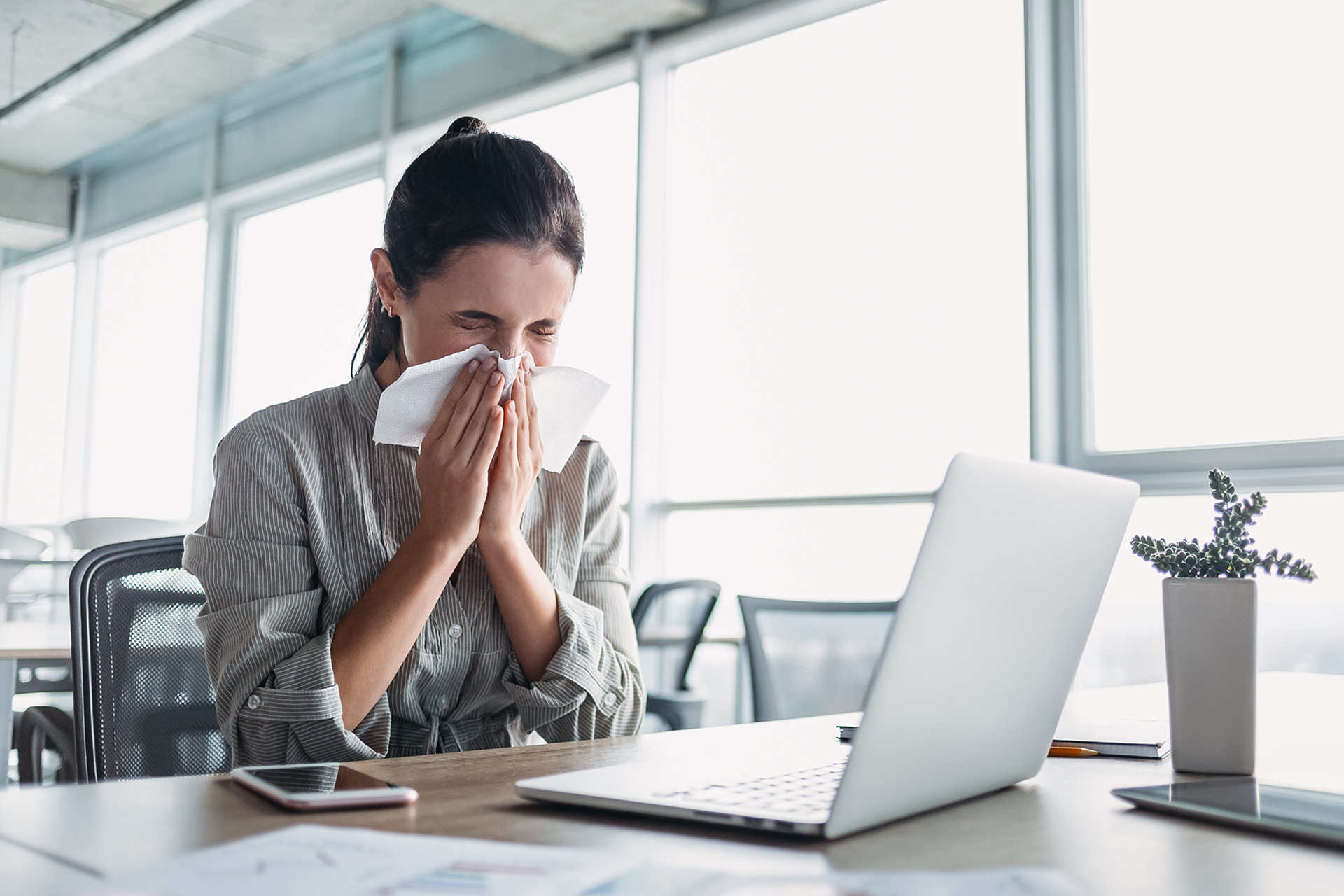Going to work with covid: What the UK law says?

It is 6 AM, and you have just tested positive for covid. Your mind races: “can I go to work with covid UK?” This critical question continues to affect workers across the UK in 2024. While the pandemic’s initial urgency has passed, the legal implications of covid UK in the workplace remain significant. Whether you are dealing with a positive test or uncertain about current return to work guidelines, this article provides clear, practical answers. For specific situations, we strongly recommend seeking professional legal counsel to ensure your rights are fully protected.

Key Takeaway: Can you work with Covid?
Protect your job, your health, and your rights – discover what UK law says about Covid in the workplace in 2024.
The new normal: Covid rules 2024
The UK’s approach to Covid management has shifted dramatically from mandates to personal responsibility. Workplace regulations now focus on risk management and individual health awareness while maintaining essential safety standards:
- Clear reporting procedures for positive test results must be established.
- Self-isolation after a positive test is strongly advised but not legally required.
- Companies must maintain updated Covid risk assessments and response plans.
- Reasonable accommodations for high-risk employees remain protected by law.
- Covid test policies are set by individual employers based on their risk assessments.
- Remote work options should be considered for vulnerable employees where feasible.
- Workplace ventilation and hygiene standards must meet Health and Safety at Work Act requirements.
- Vaccine requirements are no longer mandatory in most workplaces, though some healthcare settings maintain specific protocols.
Know your Covid rights
The current legal framework establishes specific rights and obligations that every worker should be aware of to navigate Covid-related workplace situations effectively:
- Right to confidentiality regarding Covid test results.
- Right to refuse work in cases of serious and imminent danger.
- Protection from dismissal for following current Covid guidelines.
- Protection against discrimination related to Covid or vaccine status.
- Access to appropriate Personal Protective Equipment (PPE) if required.
- Right to request reasonable workplace adjustments after a positive test.
- Entitlement to Statutory Sick Pay (SSP) when meeting qualifying conditions.
Along with these rights, employees have legal obligations they must fulfil to maintain a safe and compliant workplace environment:
- Adherence to any sector-specific Covid rules.
- Obligation to consider others’ safety in the workplace.
- Duty to inform employers promptly of a positive test.
- Compliance with company-specific Covid safety policies.
- Responsibility to follow current return to work protocols.
- Cooperation with reasonable workplace safety measures.
- Honest communication about Covid symptoms and exposure.
When can I return to work after a positive Covid test UK?
While strict isolation periods are no longer legally mandated in 2024, responsible return-to-work practices remain essential for workplace safety:
The following guidance outlines current recommendations and legal considerations for returning to work, based on both government guidelines and established workplace practices:
- Stay home for 5 days after your positive test if possible.
- Consider return only after major symptoms have resolved.
- Remote work should be utilized when available during recovery.
- Follow any specific policies your employer has established.
- Healthcare workers may face stricter return protocols.
- High-risk workplace settings may require a negative test.
To ensure a smooth and compliant transition back to work, employees should follow these essential steps when planning their return:
- Follow sector-specific Covid rules for your industry.
- Consider wearing a mask for additional days after return.
- Plan a phased return if needed and agreed with employer.
- Ensure compliance with current vaccine requirements if any.
- Document your positive test date and symptom progression.
- Communicate clearly with your employer about your condition.
- Obtain any required medical clearance if specified by employer.
Covid and your pay check
While special Covid payment schemes have ended, several standard financial support mechanisms remain available for workers affected by Covid UK in 2024:
- Statutory Sick Pay (SSP) from day one of COVID-related absence.
- Current SSP rate of £109.40 per week for up to 28 weeks.
- Company sick pay schemes may offer enhanced payments.
- Part-time workers receive SSP pro-rata.
- Zero-hours workers may qualify based on average earnings.
- SSP applies when following workplace Covid rules.
- Medical evidence requirements vary by employer policy.
Additional support options include:
- Occupational health support programs.
- Company-specific Covid absence policies.
- Universal Credit for extended illness periods.
- Flexible working arrangements during recovery.
- Financial hardship funds through local authorities.
- Reasonable adjustments for long Covid conditions.
- Employment and Support Allowance for qualifying individuals.
Do I need an employment lawyer?
Covid-related workplace disputes have evolved significantly since 2020, but they have not disappeared. While many situations can be resolved through HR departments or workplace procedures, some scenarios require professional legal expertise.
Seeking legal expertise in Covid-related workplace issues can offer several advantages, including:
- Expert guidance: Lawyers can interpret complex employment laws and policies, ensuring your rights are protected.
- Negotiation support: A skilled lawyer can negotiate settlements, severance packages, or compensation on your behalf.
- Litigation preparedness: If your case escalates to court, having legal representation ensures you are fully prepared and supported.
- Documentation assistance: Employment lawyers can help you gather evidence and properly document your case to strengthen your position.
- Stress reduction: Legal representation can alleviate the pressure of dealing with a workplace dispute, allowing you to focus on your well-being.
Frequently Asked Questions about Covid UK at work
- Can my employer force me to take a Covid test regularly in 2024? Yes, if it is part of a reasonable workplace safety policy. However, they should typically cover the cost of testing.
- What if my colleague comes to work with Covid symptoms? Report your concerns to HR or your manager immediately. They have a legal duty to maintain workplace safety.
- Can I be fired for having long Covid UK? Long Covid may qualify as a disability under the Equality Act 2010, providing legal protection against dismissal.
- Can my employer change our Covid rules without consultation? Yes, but changes must be reasonable and communicated clearly to all staff.
- What if I get Covid UK while working from home? You are still entitled to sick pay and should follow normal absence reporting procedures.
While Covid UK workplace rules have evolved significantly since 2020, understanding your rights and responsibilities remains crucial. Whether dealing with a positive test or planning your return to work, stay informed about current guidelines and do not hesitate to seek legal advice when needed.
Uncertain about your Covid UK workplace rights?
Qredible’s network of employment lawyers can guide you through your options, from managing a positive test situation to resolving complex workplace disputes.
KEY TAKEAWAYS:
- The UK’s approach to Covid management has shifted from strict mandates to personal responsibility, with employers now setting their own workplace safety policies based on risk assessments.
- While self-isolation is no longer legally required, staying home for 5 days after a positive test is strongly recommended for workplace safety.
- Employees maintain significant legal rights, including protection from dismissal for following Covid guidelines and entitlement to sick pay.
- Financial support remains available through standard sick pay and company-specific policies, though special Covid schemes have ended.
- Legal representation should be considered for workplace disputes involving discrimination, unfair dismissal, or safety violations related to Covid.
Do you need a solicitor?
Find a solicitor on Qredible in just a few easy steps
















